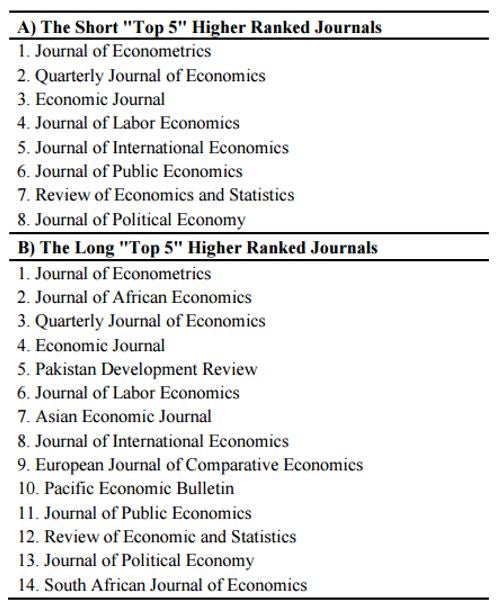- On the Future Development blog, Steve Radelet provides a summary set of responses to the blanket “aid doesn’t work” critique
- Berk’s post this week on list randomization experiments had some of the best comments and discussion we have had for a while. Thanks to our readers! Clearly we just need to make our posts even more geeky than usual to get good discussion going.
- The New York Times discusses the Suri and Jack work on M-Pesa, and then the different innovations that have followed M-Pesa and make use of its payment infrastructure.
- Tim Taylor on the economics of the ‘stans.
- When I was at Stanford I was stunned one lunchtime when several people said that if they had a choice between two candidates, and one had several top-5 journal publications and nothing else, and the other had the same number of top-5 plus a bunch of field journal publications, they would prefer the one who had only published in top-5s. I thought this was atypical, but this week Berk alerted me to a new IZA discussion paper which tests the idea that publishing in lower ranked journals can hurt you. They had economists at 44 universities rank CVs, where CVs had the same number of higher ranked publications, and then some added additional publications in lower ranked journals (e.g. CV A vs CV B in the picture below): they find CV A to be rated significantly higher than CV B. Note however that these results are based on having people rank hypothetical CVs in a no-stakes environment, and don’t provide information on confounding factors such as time since PhD.

- Job opportunities: the Africa Gender Innovation Lab is looking for a field coordinator for an impact evaluation about gender-based violence and women’s health in Rwanda (details); DIME is looking for a field coordinator for a recently launched IE that explores the impact of Bangladesh’s electronic procurement system on barriers to entry, and on the economic and administrative efficiency of public infrastructure purchases (TOR).


Join the Conversation